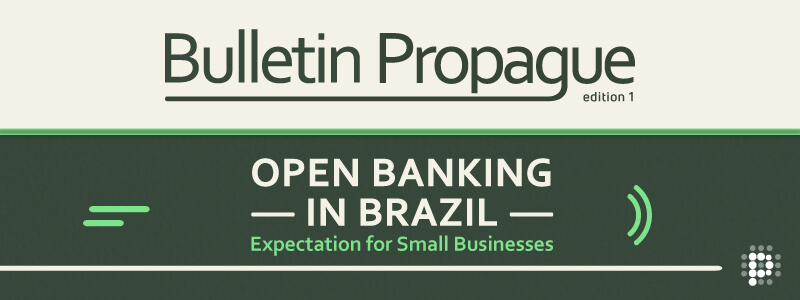In the UK, Open Banking has been operational since 2018, while the Brazilian version started in February 2021.
In its annual report, the Open Banking Implementation Entity (OBIE), responsible for implementing the system in the UK, disclosed that in 2020 the services enabled by Open Banking data sharing reached 3 million users, among consumers and small and medium-sized businesses.
The economic crisis caused by the Covid-19 pandemic has forced individuals and companies to seek solutions to improve their financial management and access to credit, boosting the take-up of new financial services made possible by data sharing in Open Banking.
As of January of this year, there were 299 participants regulated by the Competition and Markets Authority (CMA), being 219 service providers and 80 account providers, including banks and other financial institutions.

Source: OBIE Annual Report 2020.
Open Banking – making personal finances easy
According to OBIE’s annual report, consumer-facing Open Banking-enabled propositions focus on personal finance management tools (33%) and bank account aggregators (19%), followed by product comparison (8%) and credit file enhancement (7%) and micro-savings (7%).
The Nesta Challenge survey revealed that in the midst of the pandemic, 38% of UK consumers wanted personalized advice to improve their financial management. Of those who had already used some Open Banking-enabled service, 82% felt an improvement in managing their money.
In Brazil, the sharing of customers’ transactional data will allow service providers to develop solutions similar to the ones already seen in the United Kingdom. In fact, the dispute over customer data sharing between one commercial bank and an account aggregator app fintech was resolved by the antitrust supervision authority (CADE) and is one of the antecedents of Open Banking in Brazil.
From July 2021, banks and other account provider institutions in Brazil will be required to share the transactional data of the customers who choose to use Open Banking-enabled services such as those mentioned above.
Small businesses more resilient thanks to Open Banking
Open Banking propositions for small and medium-sized businesses (SMBs) are split between financial management tools, digital payments, credit-related solutions, and services to ensure compliance with the e-commerce rules in PSD2.
Most of the SMB-oriented solutions the Financial management tools are the most frequent at the Open Banking App Store, according to OBIE:
- 23% of apps specialize in financial management for SMEs;
- 16% are accounting apps;
- 16% are focused on cash flow management and forecasting.
OBIE estimates that about a fifth of final users of Open Banking solutions are small businesses. The adhesion by SMEs is a move to keep up with innovations in the market and gain resilience against the uncertainty imposed by the global crisis context.
In a survey that interviewed 500 decision-makers in companies with up to 49 employees, 50% used services associated with Open Banking. 24% of the SMBs had contracted cloud accounting services, 21% used cash flow forecasting services and 18% contracted alternative credit.
This survey pointed out that these new solutions associated with the Open Banking ecosystem have allowed small entrepreneurs to reduce bureaucracy, improve their understanding of the business, and make it more resilient in the face of the crisis.
In addition, the enterprises that adopted Open Banking solutions were more likely to change banks in search of the best conditions for business current accounts.
Benefits: credit for small and medium-sized businesses
Solutions for the credit market come in second place in the Open Banking App Store for businesses, with 13% of apps dedicated to loans and alternative lending and 6% to debt management.
Besides facilitating credit taking through digital channels, data sharing in Open Banking provides lenders with more information about the SMBs payment history and indebtedness, which can result in loan offers that better suit each company’s profile.
Normally, this detailed information is under the control of the bank where the company has an account. In the UK, Open Banking has made it easier for alternative lending institutions, i.e. different from the big banks, to participate in the microloan market for SMEs.
According to OBIE research, 18% of SMEs have used loans from alternative lenders, and 3 in 5 of these companies felt that alternative lending made the business more resilient.
Open Banking to foster digital payments
Open Banking solutions to enable online and in-store payments are the Open Banking Implementation Entity’s bet for small business growth in 2021.
With the Second Payment Services Directive (PSD2), the UK and the European Union have seen the emergence of payment initiation service providers (PISPs). These providers are user-friendly interfaces that perform transactions on behalf of the customer without requiring them to log into the bank’s app.
Open Banking brings more security and convenience by facilitating the connection between the PISPs and the final customers’ banks through an open API.
17% of the SME proposals on the Open Banking App Store offer payment solutions for e-commerce and are alternatives to traditional payment options, which have become extremely relevant in the context of the pandemic, since retailers needed to adapt to digital channels.
Later in 2021, OBIE plans to implement a mechanism to enable variable recurring payments through PISPs. With this, instead of entering their card details in a delivery app, streaming service or marketplace, the customer will be able to authorize the third-party service provider to make payments directly from their bank account, eliminating the need to expose bank details to the merchant’s website.
In Brazil, processes to allow payment initiation services in the Open Banking ecosystem will begin in August 2021, in the third phase of implementation.
| You might also like: Open Banking and Demand: Financial Capability Programs



